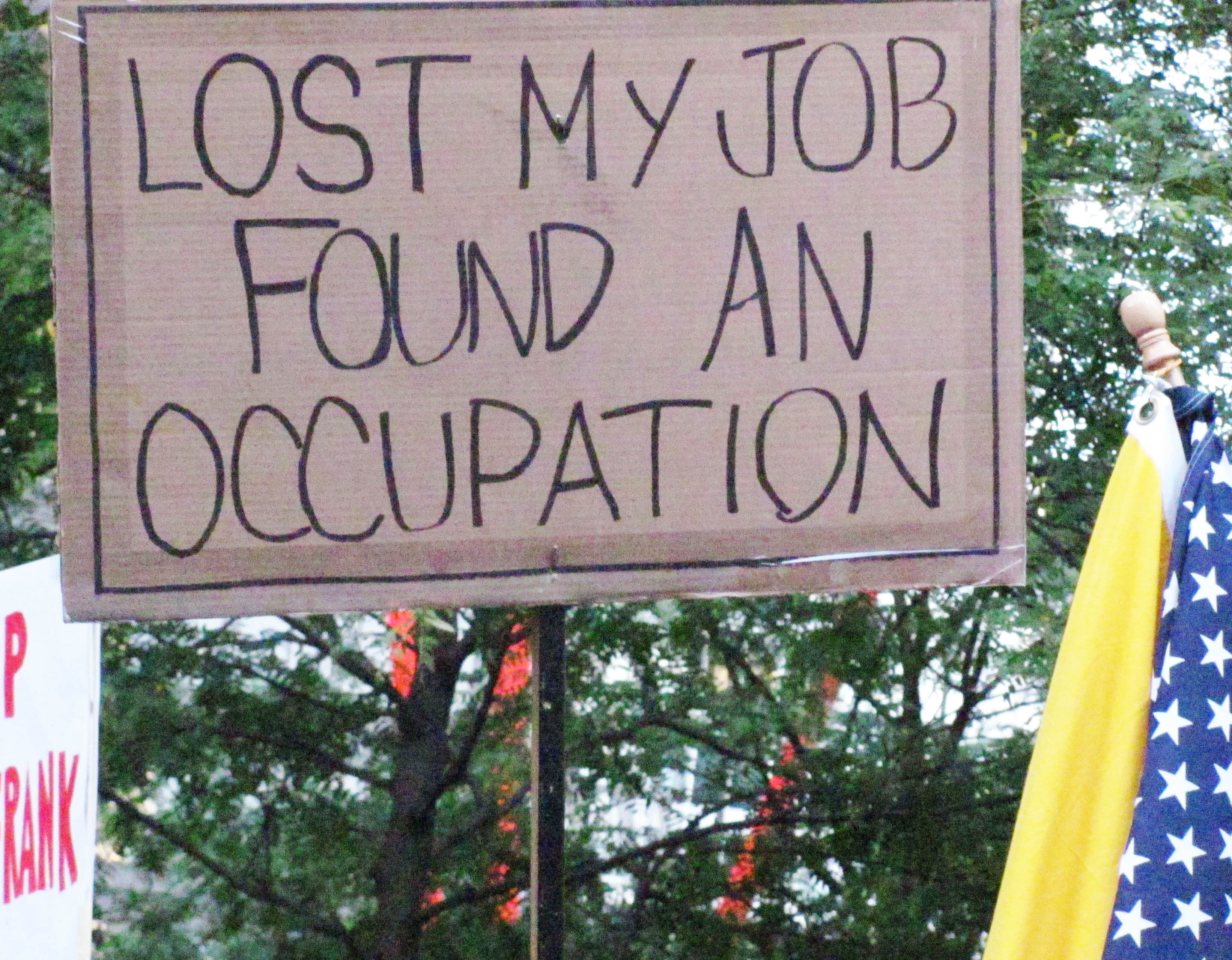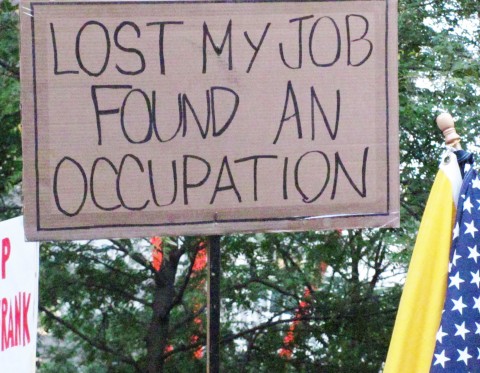As the events in Manhattan have unfolded, I have had many conversations with my fellow students about the protests and the demands of the movement. Some support Occupy Wall Street, but others do not. Those who do not have had several problems with the protest’s methods and demands. They have criticized the lack of focused demands, in- sufficient anger at the government, and the perception that the protesters are shirking personal responsibility. It is my belief, however, that what the movement actually does is point out deep inequalities inherent in the American government and economy. It responds to the deep gulf that exists between what America supposedly stands for and what it delivers.
In my opinion, criticizing the lack of a single demand entirely misses the point of Occupy Wall Street. If you listen closely, it is in fact quite easy to hear what they are asking for-economic justice in our society. On the ‘We Are the 99%’ Tumblr, every story underlines the same point. The financial crisis has hit the middle and lower classes the hard- est, and there has been little effort on the part of the government and financial systems to alleviate the pain effectively. Moreover, the point of protest in general is not necessarily to forward a specific demand. It is a form of raising consciousness, and it is a request for a dialogue between those whose voices have not been heard by Capitol Hill and Wall Street. For the first time in a long time, there is real debate about alternatives to the current system, not just quick fixes or adjustments.
Take those who are saying we should end the Federal Reserve. Even though I believe that this would be a terrible idea, I applaud the spirit behind it. There is finally thought about real alternatives. Others have asked why we do not direct our anger toward the government. I feel, that between the prevalence of corporate lobbyists and the ruling of Citizens United v. Federal Election Commission, which allows corporations to run independent political ads and broadcasts, there is little separation between the two.
The government is in the pockets of those who fund their campaigns. Be- tween the amount of time spent running for office (which is most of the time, especially in an election year) and the fact that candidates have wide and unsupervised discretion in spend- ing their leftover campaign money, the act of governing has become secondary to pleasing those who actually fund their jobs. Some students have asked me why I see a problem with this in the first place. They have expressed misgivings at the vitriol often direct- ed towards big companies, thinking, I suspect, that it is blind hatred, not thoughtful criticism. I believe, however, that this is untrue and that there is a good reason for distrusting corpo- rate influence in government. Corporations exist solely to make a profit for their shareholders. There is nothing inherently wrong with this. Money is not necessarily evil, and shareholders have a right to make a living, just as anyone else does. However, this does mean that corporations have a place in government. Profit motive does not create a moral compass. In fact, it does the opposite — it makes them opportunistic, which is something that a government should not ever be. With the influence that money now has over our government, legislators have become pawns of the major companies, and serve their interests, not those of the people. Protesters are on Wall Street, not Capitol Hill, to send a message to those who are really in power—to show them we know they pull strings, and to tell them we will not stand for their manipulation.
Some students have told me that what the 99% feel is not injustice but laziness, and that if they had planned better, worked harder and been more careful, they would not be in their current situation. This is not the case, as any senior or recent graduate can tell you. We are told that we should have been more prudent with borrowing or not have taken on such massive loans. We are told to get a job and work our way through school. Yet how are we to do this? We were told to take out loans. “Don’t worry. You will be able to pay them off easily with the good job you will get after.” Now? Layoffs are everywhere, as companies try to protect their bottom line. Again, the current system told us one thing, and then as soon as it appeared unprofitable, left us behind. How are people supposed to plan and protect against a global financial crisis? This argument is fundamentally flawed; as unemployment rises, more and more applicants vie for the few jobs left, and we are left with debts we were told to take on under false pretenses.
The final straw for most protesters and the most bitter pill to swallow, however, is that many on Wall Street feel all of this is the culmination of the failure of the American Dream. With the availability of good education on the decline, it is harder than ever for many Americans to live out the illustrious fantasy of pulling oneself up by one’s own bootstraps. Instead, class lines are becoming progressively more solidified and the gap between the rich and the poor is increasing slowly but steadily. Even graduates from some of the most prestigious colleges in the nation are hitting a blockade upon entry into the job market. What is the cause of the population’s inability to acquire the means necessary to determine the course of their lives? Even throughout my time in college, it has become increasingly clear that hard work, prudence and perseverance are no longer enough.
At this point, some of you may be asking why I, as a privileged person who has benefited from this system, want to change it. I believe that even if you are not necessarily the victim of injustice, you are still obligated to stand up for those who are. This is not a form noblesse oblige, rather, a feel- ing of morality. It is important to be ac- countable and responsible, even when it is against your own best interests. In other words, I am not willing to sit back and watch the country I love and the world I live in become a place that harms its inhabitants. A world with- out ethics and without those willing to fight for good is not a safe world. •











